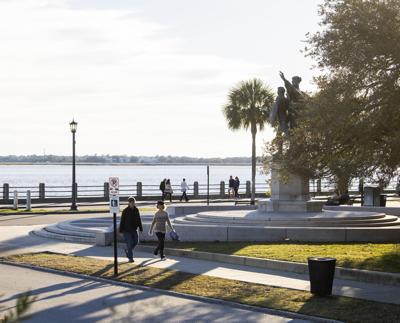Charleston residents and visitors to The Battery are calling on the Charleston City Council to enhance livability on the peninsula by enforcing existing ordinances related to noise, parking, and traffic. As the profile of Charleston’s visitors evolves, with high-spending overnight guests expecting a higher standard of livability, the need for stricter enforcement has become apparent.
The announcement comes as the city faces criticism for its perceived lax enforcement of noise ordinances, which some argue degrades the quality of life for both residents and tourists. According to residents, including Jack Herrmann, who lives near The Battery, the noise levels have become unbearable, with motorcyclists often triggering noise alerts at 90 decibels. Herrmann also points out the issue of speeding on East Bay Street, where enforcement is rare, increasing the risk of accidents.
Comparisons with Neighboring Cities
Charleston’s approach to noise control contrasts sharply with neighboring cities like North Charleston and Mount Pleasant, where noise ordinances are enforced using decibel meters. This discrepancy raises questions about why Charleston has not adopted similar measures. The “broken windows” theory suggests that visible signs of disorder, such as unchecked noise pollution, can lead to further disorder and crime.
Parking is another critical issue, with vehicles often parked for extended periods in residential spaces, despite clear signage indicating towing and limited one-hour parking requirements. This lack of enforcement affects both residents, who pay property taxes and purchase parking permits, and visitors, who struggle to find parking for a brief view of the harbor.
The Importance of Historical Integrity
Meanwhile, another issue has sparked debate regarding the U.S. National Park Service’s recent initiative to enlist visitors to report any “signs or other information that are negative about either past or living Americans.” This move, highlighted in a June 25 article by the Post and Courier, has drawn criticism from individuals like Doc Ardrey of Summerville, who argues that such actions could lead to a whitewashing of history.
Ardrey emphasizes the importance of acknowledging America’s past blemishes alongside its achievements. He warns that purging information about historical events like Jim Crow, slavery, and the internment of Japanese Americans during World War II undermines the credibility of national parks as trusted resources.
Reflecting on Foundational Documents
As Independence Day approaches, some residents, like Laura Gates of Charleston, are turning to foundational documents for reflection. Gates plans to begin her Fourth of July celebrations with a reading of the Declaration of Independence, urging others to do the same as a reminder of the nation’s core values and principles.
The Ongoing Importance of Vaccination
In a related discussion on public health, Richard Gross of Mount Pleasant recalls the impact of the Salk vaccine in 1956, which protected him and his classmates from the poliovirus. Gross highlights the ongoing threat of preventable diseases, particularly in developing countries, and underscores the importance of vaccination in preventing outbreaks like the recent measles resurgence.
Gross’s reflection serves as a reminder of the critical role vaccines play in public health, drawing a parallel to the current challenges faced by health officials in combating vaccine misinformation and hesitancy.
Engaging the Community
The Post and Courier invites residents to participate in community conversations by submitting letters to the editor. These letters, limited to 250 words, offer a platform for individuals to express their views on pressing issues, fostering a dialogue that is essential for informed civic engagement.
As Charleston navigates these complex challenges, the voices of its residents will be crucial in shaping the city’s future. Whether addressing livability concerns, preserving historical integrity, or advocating for public health, the community’s input remains invaluable.
